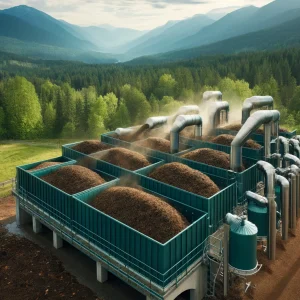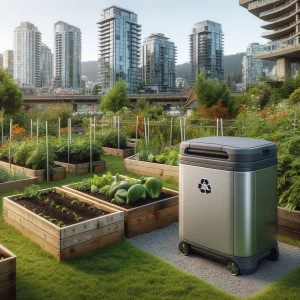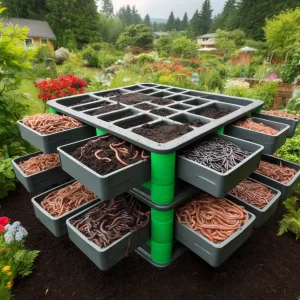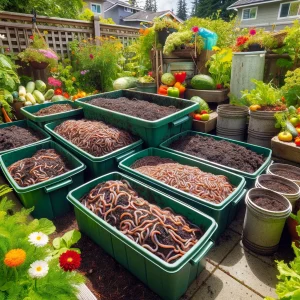In the quest for sustainability, turning landscape waste into compost has become a pivotal practice for gardeners and landscapers. The latest innovations in composting technologies make this process more efficient and eco-friendly. This blog explores some groundbreaking technologies and companies in British Columbia leading the way in landscape waste composting.

Advanced Composting Technologies
- Aerated Static Pile (ASP) Systems
Aerated Static Pile (ASP) systems have revolutionized composting by significantly reducing the time required to convert waste into compost. These systems use blowers to provide a continuous airflow through the compost pile, eliminating the need for manual turning. In British Columbia, several companies have adopted ASP systems to manage large volumes of landscape waste efficiently.
- In-Vessel Composting
In-vessel composting technology allows precise control of environmental conditions such as temperature, moisture, and aeration. This method is particularly effective for urban areas with limited space. In British Columbia, companies like EcoRich have developed compact in-vessel composting units that can be used by small businesses and community gardens to compost organic waste on-site.
- Vermicomposting
Vermicomposting uses earthworms to break down organic waste, producing high-quality composts known as worm castings. This method is gaining popularity among gardeners and landscapers in British Columbia for its simplicity and effectiveness. Companies like TerraCycle have introduced innovative vermicomposting systems that can handle large amounts of landscape waste while producing nutrient-rich compost.

Companies Leading the Way in British Columbia
- Green Mountain Technologies
Green Mountain Technologies (GMT) has been at the forefront of composting innovation in British Columbia. Municipalities and commercial composting facilities across the province use their advanced ASP systems. GMT’s technology accelerates the composting process and ensures that the end product is high-quality and free of pathogens.
- EcoRich
EcoRich offers a range of in-vessel composting solutions tailored for urban environments. Their units are designed to be space-efficient and user-friendly, making composting accessible to small businesses, schools, and community gardens. EcoRich’s technology helps reduce the volume of landscape waste sent to landfills, contributing to a more sustainable urban landscape.
- TerraCycle
TerraCycle specializes in vermicomposting solutions that are both scalable and efficient. Their systems are popular among gardeners and landscapers in British Columbia who seek to produce high-quality compost with minimal effort. TerraCycle’s commitment to sustainability is evident in its innovative designs that make vermicomposting accessible to a broader audience.

Environmental Impact and Benefits
Adopting advanced composting technologies has a significant positive impact on the environment. By turning landscape waste into compost, these innovations help reduce the volume of waste sent to landfills, thereby decreasing greenhouse gas emissions. Additionally, the compost produced is rich in nutrients, which enhances soil health and reduces the need for chemical fertilizers.
These technologies also offer practical benefits for gardeners and landscapers. The compost produced can improve soil structure, retain moisture, and suppress plant diseases, leading to healthier and more vibrant gardens. Moreover, composting systems can reduce waste disposal costs and create a more sustainable landscaping practice.

The landscape waste composting innovations in British Columbia are setting new standards for sustainability in gardening and landscaping. Technologies such as Aerated Static Pile systems, in-vessel composting, and vermicomposting make turning organic waste into valuable compost easier and more efficient. Companies like Green Mountain Technologies, EcoRich, and TerraCycle lead the way with innovative solutions.
By adopting these advanced composting methods, gardeners and landscapers can significantly contribute to environmental conservation while enhancing the quality of their landscapes. The future of sustainable landscaping lies in embracing these innovative composting technologies, turning waste into wealth for a greener planet.